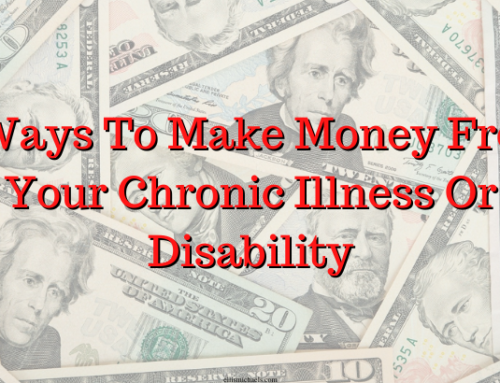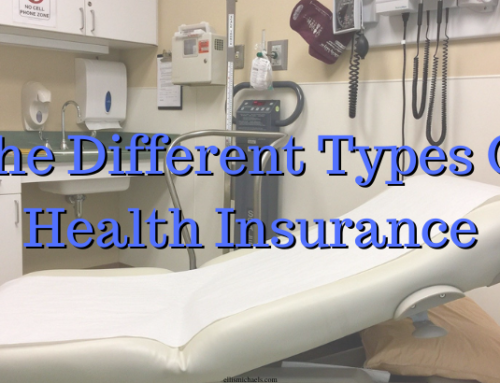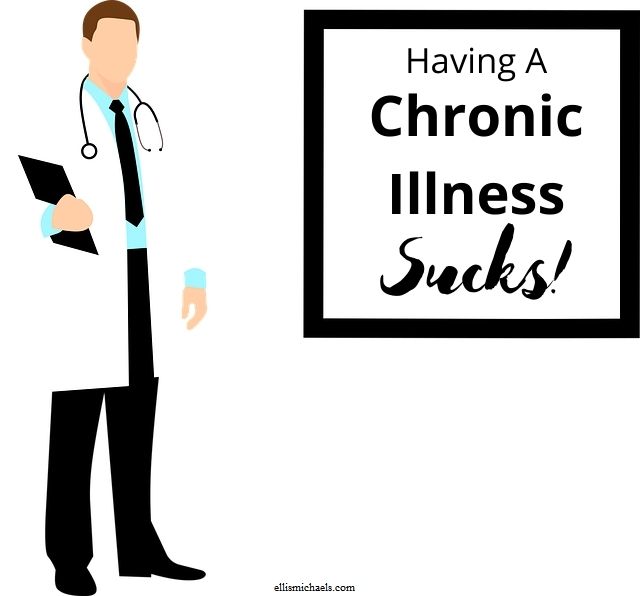Let’s talk about side effects. If you’ve been living with a rare, chronic illness and are taking medication for it, odds are you’ve experienced a side effect or two. But hopefully you haven’t experienced all of the side effects on our list.
In this article, we’re going to take a look at 8 embarrassing side effects that can be caused by common medications. We’ll also see if there’s anything you can do to reduce the severity or likeliness of these embarrassing side effects.
8 Embarrassing Side Effects From Common Medications
Table of Contents
Drugs are prescribed to treat symptoms and diseases. But, in addition to their desired effects, drugs can also have side effects. These are unwanted effects that can be very unpredictable. And as is the case with the 8 side effects on our list, they can be very embarrassing. Let’s jump right into it.
1. Stretch Marks
These are lines that appear on the skin after it has been stretched. Pregnancy and obesity are the most common causes of stretch marks. When someone gains a lot of weight over a relatively short period of time and then loses it, stretch marks can appear.
Some chronic diseases can cause stretch marks. Examples include Cushing’s syndrome, Ehlers-Danlos syndrome, Marfan’s syndrome and other adrenal gland disorders. They increase the amount of cortisone in your body which can lead to stretch marks.1
In addition to the stretch mark causes above, they can also be brought on by certain medications. Corticosteroid pills, creams, and lotions can all cause stretch marks. Here are just some examples of corticosteroids: prednisone, hydrocortisone, prednisolone, methylprednisolone, dexamethasone, and desonide, though there are many others.
 When I was in my teens, I was put on a high dose of prednisone for several months. It caused me to gain a bit of weight, especially in my butt. The result? Stretch marks. Lots and lots of stretch marks on my butt. Fortunately, my backside is so pale that you can barely notice them. But they’re still there over twenty years later.
When I was in my teens, I was put on a high dose of prednisone for several months. It caused me to gain a bit of weight, especially in my butt. The result? Stretch marks. Lots and lots of stretch marks on my butt. Fortunately, my backside is so pale that you can barely notice them. But they’re still there over twenty years later.
I didn’t know it as a teen, but there are several home remedies you can use to try to help prevent and decrease the severity of stretch marks. If you’re at risk for developing stretch marks or have already started getting them, massage cocoa butter into the affected area. Some people claim it can help prevent and even reverse stretch marks if used early enough.
Also, some people have claimed that vitamin E and zinc can help to improve the appearance of stretch marks. However, the science for such claims is lacking. Studies have shown that cocoa butter, shea butter, almond oil, coconut oil, vitamin E, and zinc don’t help stretch marks.2 What studies have shown can help are the topical prescription medications tretinoin and hyaluronic acid. But some people swear by cocoa butter and other home remedies for stretch marks. Since they’re usually side-effect free, it can’t hurt to try them.
2. Hair Loss
This is listed as a side effect of many, many drugs. Losing your hair can be incredibly embarrassing, especially if you’re a woman. But it’s still no picnic for us guys either – let me tell you!
A lot of different medications interfere with the scalp’s normal hair-growth cycle. When hair loss occurs, it typically starts within two-to-four months of starting the medication. How severe the hair loss is depends on the drug, the dosage, and how sensitive your body is to the drug. Here are just some classes of drugs known to cause hair loss:3
- Retinoids (vitamin-A-based acne medications)
- Antibiotics
- Anticonvulsants (drugs for epilepsy)
 Antidepressants
Antidepressants- Antifungals
- Antihypertensives (drugs for high blood pressure)
- Antiparkinson drugs
- Birth control pills
- Corticosteroids
- Immunosuppressants
- Hormone replacement therapy (HRT aka TRT)
- Mood stabilizers
- Nonsteroidal anti-inflammatories (NSAIDs)
- Thyroid drugs
As you can see, there are tons of categories of drugs linked to hair loss. That’s not even an exhaustive list. And these aren’t individual medications. They’re categories, some of which contain dozens of drugs.
 I’ve personally been on at least one drug in as many as ten of those categories. My hair started thinning in my mid-to-late twenties. I always just assumed my hair loss was genetic, but now I’m not so sure. It’s possible that some of the medications I’ve been on over the years have sped up the process.
I’ve personally been on at least one drug in as many as ten of those categories. My hair started thinning in my mid-to-late twenties. I always just assumed my hair loss was genetic, but now I’m not so sure. It’s possible that some of the medications I’ve been on over the years have sped up the process.
While my hair loss hasn’t really bothered me, I’m sure it would’ve if I was a woman or if it had started happening earlier in life. Fortunately, there are several treatment options available for men and women.
Minoxidil was originally a prescription-only medication sold under the brand name Rogaine. Now it’s available as a generic, over-the-counter (OTC) drug. It has to be applied daily and can take months to work, but a lot of men and women have regrown hair by using minoxidil. Other treatment options include hair transplantation and, for women, anti-androgen therapy and iron supplementation.4
3. Dental Problems
Ever met someone who likes going to the dentist? Neither have I. But there are a number of medications that can land you in the dentist’s chair. Here are just some of the problems that common medications can cause for your mouth and which categories can cause them:5
- Abnormal bleeding – anticoagulants (blood thinners)
- Discoloration of teeth and gums – antihypertensives, immunosuppressants, chemotherapeutics
- Dry mouth – many including antihistamines, painkillers, antidepressants, and others
- Enlarged gum tissue – anti-seizure meds, immunosuppressants, calcium-channel blockers
- Inflammation – antihypertensives, immunosuppressants, chemotherapeutics
- Oral sores and ulcers – antihypertensives, immunosuppressants, chemotherapeutics
- Taste alteration – stimulants (like Adderall & Ritalin), NSAIDs, cardiovascular drugs
Lots of medications can cause problems for your mouth. Drugs that cause excessive salivation as well as drugs that cause dry mouth (xerostomia) can lead to tooth decay. Dozens of medications can cause inflammation in your gums that will eventually land you in the dentist’s chair.

Dental problems can be incredibly embarrassing, especially if you’re missing one or more of your front teeth. And dental pain is one of the worst types of pain to suffer from. It can affect everything from your diet to your mood. Not to mention, dental work is incredibly expensive. It can cost thousands of dollars just to repair a single tooth.
Between the oral ulcers and gum inflammation from Behcet’s disease, and all the medications I’ve been on over the years, I’ve had a lot of painful, embarrassing dental problems. I’ve spent thousands and thousands of dollars on dental work and I still need more. Unfortunately, a lot of what I’ve been through has been unavoidable.
However, if you’re worried about developing dental problems from the medications you’re on, there are things you can do to improve your situation. Most importantly, keep your mouth clean. Brush, floss, and use mouthwash at least twice a day. Avoid excessive amounts of sugary foods and drinks. And make sure to tell your dentist about any medications you may be taking. He/she might be able to help you to minimize the risk of developing serious dental problems.
4. Priapism
This one is just for the fellas. You dodged a bullet on this one, ladies. While this next side effect does sound humorous, it’s anything but funny for the poor guys who have suffered through it.
Priapism is a medical condition where the penis stays involuntarily erect for hours and hours. No matter what you do, no matter how hard you try to think about baseball, muscle cars, or whatever else gets your mind off sex, it just won’t go down. And priapism can be incredibly uncomfortable, sometimes downright painful.
There are a three types of priapism: low-flow (ischemic), high-flow (nonischemic), and intermittent (recurrent ischemic).6 Most priapism cases are ische mic. Several medical conditions can cause it. Diseases that can cause ischemic priapism include several rare and chronic diseases: sickle cell anemia, leukemia, thalassemia, multiple myeloma, Fabry’s disease, neurological disorders, and various cancers.7
mic. Several medical conditions can cause it. Diseases that can cause ischemic priapism include several rare and chronic diseases: sickle cell anemia, leukemia, thalassemia, multiple myeloma, Fabry’s disease, neurological disorders, and various cancers.7
Several medications can also cause ischemic priapism. Classes of drugs that have been known to cause priapism include antidepressants (SSRIs), antipsychotics, anticoagulants (blood thinners), prostaglandin E1.8
While the idea of getting stuck with a never-ending erection can be funny to think about, to actually experience it is anything but. Not only can priapism be very painful and embarrassing, it can cause permanent damage to the penis when left untreated. Treatment options for severe priapism include medication, aspiration, and even surgery.9
This is the first item on our list of embarrassing side effects that I’ve never personally experienced. However, I was on a medication years ago that is known to cause priapism: trazodone. While I never had to deal with a painful erection lasting hours and hours, I do remember often waking up with the woodiest morning wood of my life.
There’s not a whole lot you can do to prevent priapism, other than avoid every class of drug that’s been linked to it. But that’s not always practical. The only thing you can really do is be aware of the symptoms of priapism and go see your doctor right away if you have an erection that lasts longer than four hours.
5. Weight Gain
 This one can be related to the first item on our list, stretch marks, but doesn’t necessarily have to be. Some people can put on and lose a lot of weight without getting a single stretch mark (Oh, how my butt envies you!). Quite often, though, the two go hand in hand. But weight gain definitely deserves its own spot on this list of embarrassing side effects.
This one can be related to the first item on our list, stretch marks, but doesn’t necessarily have to be. Some people can put on and lose a lot of weight without getting a single stretch mark (Oh, how my butt envies you!). Quite often, though, the two go hand in hand. But weight gain definitely deserves its own spot on this list of embarrassing side effects.
According to Louis Aronne, MD, the director of the Comprehensive Weight Control Center at Weill Cornell Medical College, between 10-15% of weight problems are caused by prescription medications.10 This isn’t surprising at all. Lots of medications can cause weight gain. Here are just some of the types of drugs that can cause you to gain weight and a few examples of each:11
- Antidepressants – paroxetine, sertraline, mirtazapine, amitriptyline, imipramine
- Antihypertensives (blood pressure meds) – propranolol, metoprolol
- Antipsychotics – risperidone, olanzapine, lithium, clozapine, haloperidol
- Corticosteroids – prednisone, methylprednisolone, birth control pills
- Diabetes medications – insulin, sulfonylureas, thiazolidinediones
- Anti-epileptic drugs (AEDs) – gabapentin, valproate, carbamazepine
As you can see, lots of drugs can cause weight gain. If you’ve been living with a rare and chronic illness for a long time, odds are you’ve been on at least one drug with this side effect. For most people, weight gain is undesirable and often embarrassing side effect. For me, on the other hand, it’s been a welcome one.
All throughout my teens and early twenties, I was underweight. That’s the nice way of putting it. In reality, I was a toothpick who would’ve looked skinny standing next to Skeletor. So I was always happy when a medication caused me to pack on a few extra lbs. However, I understand that most people don’t share my feelings on the subject.
But there’s some good news: Just because a medication can cause weight gain doesn’t mean that it has to. By making sure you’re getting as much exercise as possible and sticking to a reasonable diet, you can minimize the amount of weight gain you experience.
6. Diarrhea
Maybe I was wrong about #3 on our list. Maybe you do know someone who likes going to the dentist. I’m sure there are a few people out there who do. But I can almost guarantee you don’t know anyone who likes having diarrhea. I know I sure don’t!
I assume you know what diarrhea is. But just in case you don’t, I’ll give you the quick version of the World Health Organization’s (WHO) definition.12 They define diarrhea (sometimes spelled diarrhoea) as the passage of three-or-more liquid or loose stools per day. It can be caused by infection (bacterial, viral, and parasitic), malnutrition, and contaminated water and food sources.
Diarrhea is also a common side effect of dozens of medications. Just about any drug you ingest orally can cause upset stomach, nausea, vomiting, and diarrhea. Here are some of the types of drugs that can cause this unpleasant and often embarrassing side effect:13
- Antacids
- Antibiotics
 Antidepressants
Antidepressants- Chemotherapeutics
- Diabetes drugs
- Immunosuppressants
- Laxatives (obviously!)
- Nonsteroidal anti-inflammatories (NSAIDs)
- Proton pump inhibitors (PPIs)
Additionally, a number of vitamins, minerals, supplements, and over-the-counter (OTC) drugs can also cause diarrhea. While this side effect can certainly be embarrassing and unpleasant, it can also be extremely dangerous – especially for children. Diarrhea can cause dehydration which, in extreme cases, can lead to death.
Fortunately, there is a lot you can do to reduce the likelihood of medication-induced diarrhea and to improve the outcome if you’ve already got it. Sometimes you can prevent diarrhea and other gastrointestinal (GI) issues by taking your meds with a small meal.
But if you’ve already got it, the most important thing to do is stay hydrated. Diarrhea can dehydrate you quickly. Drink plenty of liquids that are high in electrolytes (salt) and sugar. Zinc supplements can reduce diarrhea episodes by up to 25%.12 And if you’re experiencing severe diarrhea, you should see your doctor. You may need him/her to administer intravenous (IV) fluids to replenish through your blood vessels what you’ve lost out your backside.
7. Dizziness
Being drunk can be fun. You’re out with your friends knocking back a few and feeling good. Then you get up to do go the bathroom and have to wobble your way there because the room is spinning a little bit.
Being dizzy from a medication has the same general effect, but it’s a lot less fun. Maybe you’re at home or maybe you’re at work and you take your med. Then, shortly after, the room starts spinning and the only thing you can think about is laying down and shutting your eyes. Not nearly as fun as a night out with the boys/girls.
Dizziness is a common side effect of a lot of medications. It’s often unpleasant and can lead to a lot of embarrassment. Here are a few types of medications that can cause dizziness:14
 Antibiotics
Antibiotics- Antidepressants
- Antiepileptics (seizure medications)
- Antihypertensives
- Sedatives
I can’t even count the number of drugs I’ve been on over the years that made me feel dizzy. They make it hard to concentrate, focus, and in extreme cases, even walk.
There really isn’t a lot you can do to reduce this unpleasant side effect. Fortunately, for some meds, the dizziness goes away after a while. But for others, it lingers for as long as they’re taking the med. If you get hit with a dizzy spell from a new med your own, take it easy. Lay down and don’t try to do too much. And if it’s overwhelming or persists for a long time, contact your doctor.
8. Drowsiness
This one is slightly related to dizziness. But drowsiness deserves its own spot on our list of embarrassing side effects from common medications. Drowsiness is when you feel like you could fall asleep at any moment.
 If you’ve got a big presentation at work, you don’t want to feel drowsy. Face planting into the slideshow projector is the last thing you want to happen. You also don’t want to feel drowsy while driving, taking care of the little ones, or doing just about anything else during the day.
If you’ve got a big presentation at work, you don’t want to feel drowsy. Face planting into the slideshow projector is the last thing you want to happen. You also don’t want to feel drowsy while driving, taking care of the little ones, or doing just about anything else during the day.
This side effect is rather common and can definitely be embarrassing. Even if you’re able to keep your eyes open, other people might think you’re on drugs. Technically you are on drugs, but not the recreational drugs they might think you are. Here are some of the types of meds and some examples that can cause drowsiness:15
- Allergy meds – diphenhydramine (Benadryl), hydroxyzine (Vistaril, Atarax)
- Antidepressants – amitriptyline (Elavil), imipramine (Tofranil)
- Antiepileptics – carbamazepine (Tegretol), topiramate (Topamax), valproic acid (Depakote)
- Antihypertensives – propranolol (Inderal), atenolol (Tenormin), metoprolol (Lopressor)
- Cancer drugs – various chemotherapeutic drugs
- Muscle relaxers – cyclobenzaprine (Flexeril), carisoprodol (Soma)
- Pain killers – oxycodone (Oxycontin, Percocet, Percodan), hydrocodone (Vicodin, Lortab)
This is only a partial list. Lots and lost of medications can cause drowsiness. And a lot of them are extremely common. Out of the few I listed above, I’ve been on at least six of them.
There are a couple of things you can do to fight off drowsiness caused by prescription drugs – but only if it’s only mild drowsiness. When a drug knocks you out, there’s really nothing you can do about it. But if you’re only a little tired, a big cup of coffee can help to snap you out of it. Or a brisk walk in nature can sometimes help to pick you back up.
Conclusion
I feel like the term side effect really minimizes what they are sometimes. Unwanted, embarrassing, pain-in-the-you-know-where effect seems like it’s more appropriate.
But no matter what you call them, side effects suck. Wouldn’t it be nice if drugs did exactly what they were supposed to do with no other undesirable effects? Maybe someday we’ll get there, but we’re not there yet.
Have you experienced any other embarrassing side effects other than the ones listed above? I’d love to hear all about it. Leave your experience in the comments section at the bottom. And if you haven’t already, join the EM newsletter below.
Join the Ellis Michaels mailing list to stay up to date with the latest news about chronic illnesses, recent articles and other publications, and more.
References
1Stretch marks: Causes and treatments. (n.d.). Retrieved July 17, 2020 from https://www.medicalnewstoday.com/articles/283651
2Ud-Din, S., McGeorge, D., & Bayat, A. (2016). Topical management of striae distensae (stretch marks): prevention and therapy of striae rubrae and albae. Journal of the European Academy of Dermatology and Venereology, 30(2):211-22.
3Medications & drugs that cause hair loss. WebMD. Retrieved July 17, 2020 from https://www.webmd.com/skin-problems-and-treatments/hair-loss/drug-induced-hair-loss-2#1
4Treating female pattern hair loss. Harvard Health Publishing: Harvard Medical School. Retrieved July 17, 2020 from https://www.health.harvard.edu/staying-healthy/treating-female-pattern-hair-loss
5How medications can affect your oral health. American Dental Association. Retrieved July 17, 2020 from https://www.ada.org/~/media/ADA/Publications/Files/patient_51.pdf
6Podolej, G., & Babcock, C. (2017). Emergency department management of priapism. Emergency Medicine Practice, 19(1):1-16.
7Fernandes, M., de Souza, L., & Cartafina, L. (2018). Ultrasound evaluation of the penis. Radiologia Brasileira, 51(4):257-61.
8Muneer, A., Alnajjar, H., & Ralph, D. (2018). Recent advances in the management of priapism. F1000Research, 7:37.
9Levey, H., Segal, R., & Bivalacqua, T. (2014). Management of priapism: an update for clinicians. Therapeutic Advances in Urology, 6(6):230-44.
10Booth, S. (2015). Are your meds making you gain weight? WebMD. Retrieved July 18, 2020 from https://www.webmd.com/diet/obesity/features/medication-weight-gain#1
11When your weight gain is caused by medicine. (n.d.). University of Rochester Medical Center. Retrieved July 18, 2020 from https://www.urmc.rochester.edu/encyclopedia/content.aspx?contenttypeid=56&contentid=DM300
12Diarrhoeal disease fact sheet. (2017). World Health Organization. Retrieved July 18, 2020 from https://who.int/en/news-room/fact-sheets/detail/diarrhoeal-disease
13What meds cause diarrhea? (2020). WebMD. Retrieved July 18, 2020 from https://www.webmd.com/digestive-disorders/what-meds-cause-diarrhea
14Can medications cause dizziness? WebMD. Retrieved July 19, 2020 from https://www.webmd.com/brain/qa/what-medications-can-cause-dizziness-as-a-side-effect
15What medicines can make you tired? WebMD. Retrieved July 19, 2020 from https://www.webmd.com/drug-medication/medications-fatigue-and-sleepiness#1







Leave a Reply